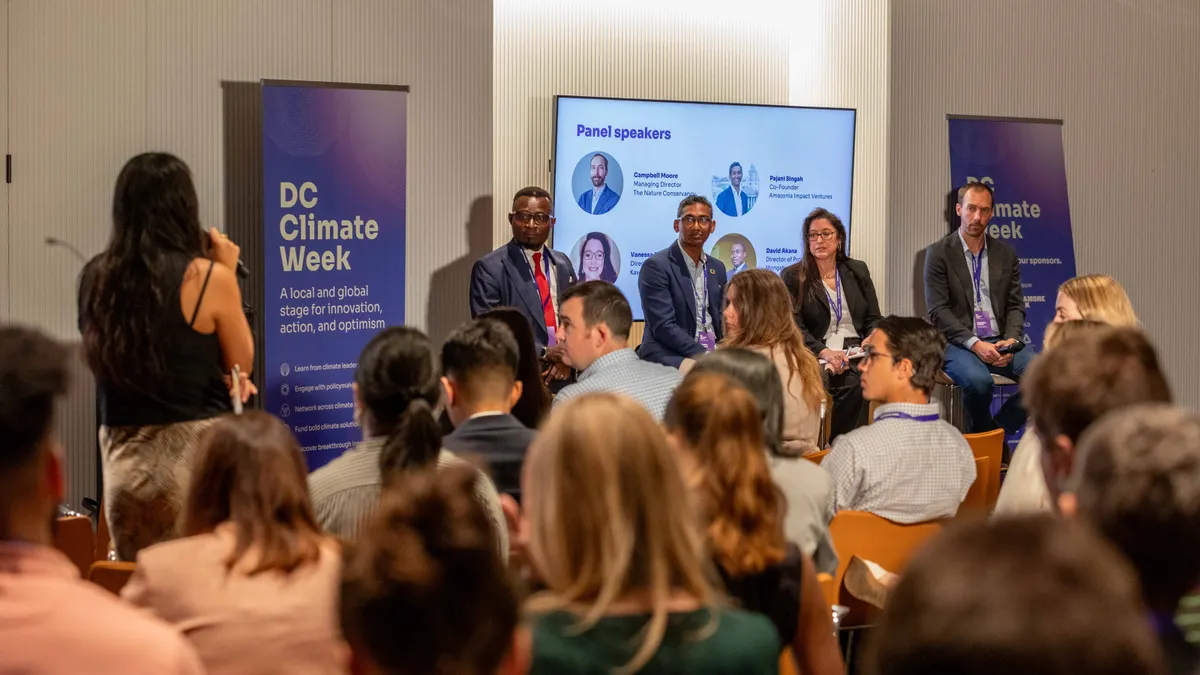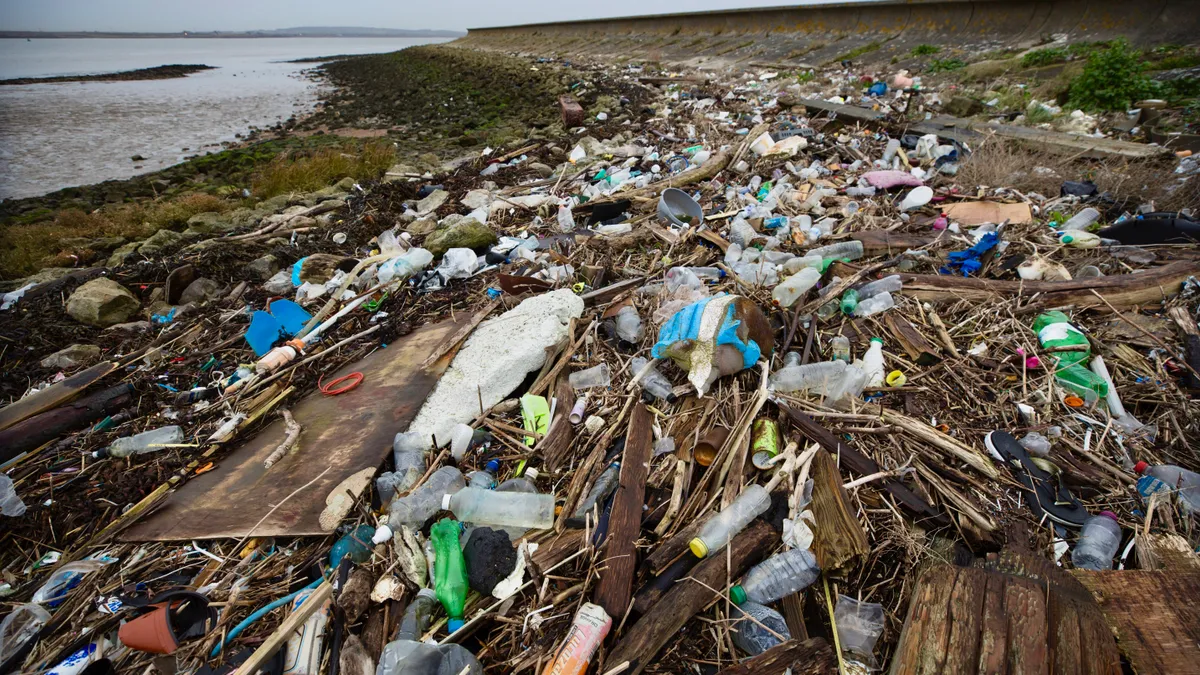As corporate stakeholders and investors have increasingly looked for companies to invest in ways to mitigate biodiversity loss, more companies are rapidly investing in conservation and nature-based carbon credit and removal solutions. While private sector demand for high-integrity nature-based solutions exists, there is still a financing gap that persists, experts said at a DC Climate Week panel last month.
In 2020, the United Nations Environment Programme issued a report that found an annual funding gap of more than $700 billion would need to be closed by 2030 to finance biodiversity conservation needs. Last year, UNEP found that private financing for nature-based solutions had grown approximately 11 times since 2020, and it’s possible that the finance gap “could” be closed by 2030 “if nature finance keeps growing at this pace,” according to the June 2024 update.
Campbell Moore, managing director of The Nature Conservancy, maintained that continuing to close that gap will require a commitment to valuing carbon markets as a tenet of corporate sustainability strategies at an April 30 panel.
“If we decide that carbon markets should be a key part of corporate sustainability strategy [and] of corporate net zero strategy … then they will be worth tens of billions of dollars [in the next decade], and that will transform the lives of millions of people around the world and help us make progress,” Moore said. Getting there will require proponents of nature-based solutions and conservation efforts to synthesize a singular message to the private sector and investors, according to The Nature Conservancy head.
“I work with many other NGO groups that, in the grand scheme of things, agree with me on 98% of reality, and yet we find ourselves squabbling on that last 2%,” Moore added. “And that is interpreted by corporate sustainability leaders and others as we don't know what to do … to leverage nature-based solutions or natural climate solutions.”
Climate negotiators approved two portions of Article 6 of the Paris Climate Agreement — the portion that guides country collaboration on reaching climate targets — at COP29 last fall that will help establish a global carbon market. Ensuring that nature-based credits and solutions are viable ways for companies to reach their net-zero goals requires high integrity credits.
Tech giants like Meta, Microsoft, Amazon and Google have invested heavily in nature-based credits to help reach sustainability targets. Meta and Microsoft each recently inked deals for forest-based credits from EFM that will be derived from the sustainable management of 68,000 acres of forests in Washington State’s Olympic Peninsula. For Microsoft, this deal followed a 1.5 million tonne purchase of carbon credits that will be delivered over 30 years, derived from the planting of trees in India.
Amazon also recently launched a carbon credit service that will give clients access to investing in nature-based credits and other carbon removal technologies. For its part, Google invested more than $100 million in carbon removals in 2024, after shifting away from using carbon credits to offset its emissions. Those include investments in enhanced rock weathering, restoring carbon sinks and biomass carbon removals, in addition to direct air capture.
Ensuring the integrity of nature-based solutions will require paying attention to any social impacts, as well as the environmental ones, Kawari Fund Director Vanessa Jiménez said on the DC Climate Week panel. The fund — operated by Re:wild, a conservation nonprofit co-founded by actor Leonardo DiCaprio — works to represent the interests of Indigenous Peoples while jurisdictions invest in forest-based carbon initiatives, according to its website.
Jiménez said that while “there are large swaths of the private sector” with a “great demand for high-integrity climate and conservation initiatives,” it will not be possible to close the biodiversity finance gap while ignoring the role of Indigenous cultures in conservation efforts.
“High integrity definitely means environmental integrity. It definitely means that a carbon ton is still a carbon ton 30 years ago, conserved,” Jiménez said. “But most importantly, it's also the social integrity. High integrity means that there's going to be inclusive participation of Indigenous peoples and traditional local communities, who are the ones who've been protecting the forest and are now forest dependent.”
De-risking investments in nature-based solutions will require recognizing there is a gap that exists for private finance, Moore said. He said there is currently capacity building that needs to be done on the supply side, and sees room for philanthropic ventures and impact investors to help bridge the gap between the current amount of risk private investors are willing to take on.
One such impact investor, Amazonia Impact Ventures Co-Founder Pajani Singah, said on the panel that his firm was specifically started to mobilize capital towards biodiversity efforts, and he and his business partner recognized that “money doesn’t move to what’s most needed.” Amazonia has looked to provide capital for companies looking to provide nature-based solutions through blended finance options.
“We deliberately didn't choose to be a … charity from day one, because we knew that you cannot rely on [the] government or [development finance institutions] or anyone,” Singah said.



















